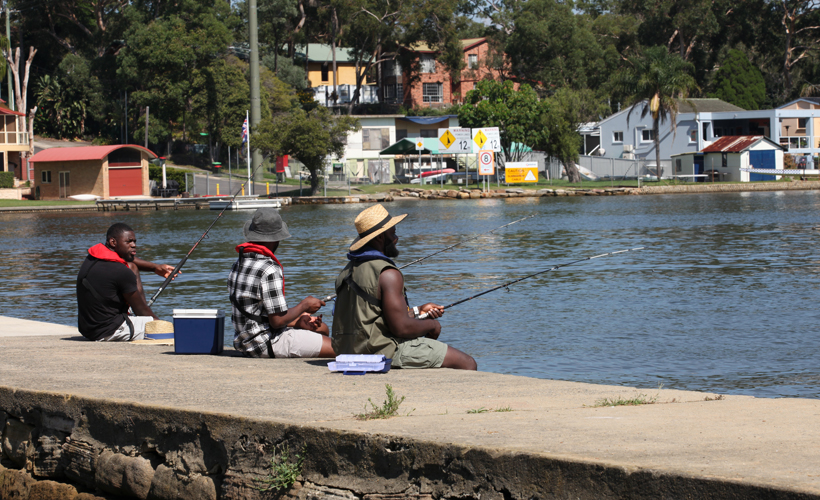Published 8 January 2022

One in four Australians admit they are weak swimmers – or can’t swim at all – according to research from Royal Life Saving Society.
It comes as the nation faces a spike in drowning deaths since the start of summer with 43 people drowning – a 23 per cent increase on the same time last year.
The Christmas to New Year period (to January 3) claimed the lives of at least 20 people, twice as many people as the same period last year.
Thirteen (65 per cent) of those incidents occurred at inland waterways including rivers, lakes, and dams.
Royal Life Saving Society – Australia Chief Executive Officer, Justin Scarr said at the halfway point of summer the safety message was more important than ever.
“Few people appreciate just how dangerous our inland waterways can be, particularly those who lack swimming skills and knowledge of local water conditions,” Mr Scarr said.
“The calm appearance can often hide steep drop-offs, currents, and debris, and create a false sense of safety relative to beaches.”
Poor swimming skills are thought to be a major factor in drowning over summer – and the lack of skills isn’t limited to children, Mr Scarr said.
Royal Life Saving research shows that one in four adults are weak swimmers or can’t swim at all.
The figure is much higher in adults who were born overseas, where 35 per cent classified themselves as weak or non-swimmers.
This is concerning given Royal Life also estimates that 40 per cent of children leave primary school not being able to swim 50 metres or float for two minutes - basic water safety benchmarks.
“We may be at-risk of losing our `Nation of Swimmers’ tag,” Mr Scarr said. “The results of our research is staggering and sadly, we may be seeing that in the increase in drowning incidents over summer”.
Minister for Sport, Richard Colbeck, said the Australian Government was working harder than ever to ensure people of all ages understood the dangers and had the swimming skills to keep themselves and others safe.
The Government continues its investment in ensuring equipment is upgraded and life saving volunteers can access vital programs to strengthen skills. With the support of the Government, Royal Life Saving and Surf Life Saving work with the Australian Water Safety Council, State and Territory organisations, and local communities to prevent drowning across the country and increase water safety awareness.
Additionally, swimming teachers are being encouraged to return to the pool to strengthen skills and save lives under the latest investment into AUSTSWIM programs announced last month.
The program will focus on re-engaging with swimming teachers who have left the industry and support them to return to the water. “This season’s drowning toll is too high,” Minister Colbeck said. “It only takes a few seconds for somebody to encounter trouble in the water and we know only too well the consequences this has on families.
“We remain committed to ensuring Australians of all ages are equipped with the skills and understanding they need to prevent another holiday tragedy.”
Mr Scarr said Australians needed a better understanding of the skills needed when swimming at rivers, lakes and dams – or wading at unpatrolled beaches.
“Currents can easily drag people into deeper water at rivers, lakes and the beach, where they are unable to stay afloat long enough for rescue or swim their way to safety,” Mr Scarr said.
When asked about why they couldn’t swim 36 per cent of respondents reported fear of the water prevented them from swimming, and 11 per cent said it was due to their parents also not being able to swim.
“Even though many people fear the water, the holiday period increases the likelihood that non-swimmers enter the water to play or sit in the shallows.
“It really is a case of knowing your limitations, being aware of the environment and avoiding getting out of your depth” Scarr said
Speaking about the Aquatic Industries willingness to welcome adults to learn to swim programs, Peninsula Leisure Chief Executive Officer, Kath Thom said,
“The Peninsula Leisure Aquatic and Recreation Centre Frankston is a great community swimming pool, where all ages can learn to swim and be safer around water. We teach vital water safety skills and have welcoming and inclusive staff to support learning, particularly if you are learning at a later stage in life.”
In response to the question about how easy it is for adults to learn to swim, Kath Thom said,
“If they (adults) are thinking about learning to swim, I urge then to contact your friendly local swimming pool and book into lessons today!”
Alcohol continues to be a drowning issue over summer with 24 per cent of adults surveyed saying they sometimes enter the water after consuming alcohol.
Queenslanders and West Australians admitted they were the most likely to swim after drinking.
“It is the holiday message we are almost sick of delivering. Avoid alcohol around water. Make the right call and keep you and your mates safe.” Mr Scarr said.
Royal Life Saving is reminding Australians to enjoy the water safely this summer. Wherever you are in Australia, these are our top five tips to enjoy the water safely:
- Always supervise children around water
- Avoid alcohol around water
- Wear a lifejacket when boating and fishing
- Avoid going alone
- Know the conditions
Royal Life Saving is again running its summer drowning toll this year. As at 7th January 2022, 43 Australians have already lost their lives to drowning. For updates, go to: https://www.royallifesaving.com.au/research-and-policy/drowning-research/summer-drowning-toll
To download B-roll or campaign images, please go to:
https://www.royallifesaving.com.au/utility-navigation/media-centre/media-resources
Media enquiries to: Media Key on 0409 420 112 or 03 9769 6488
